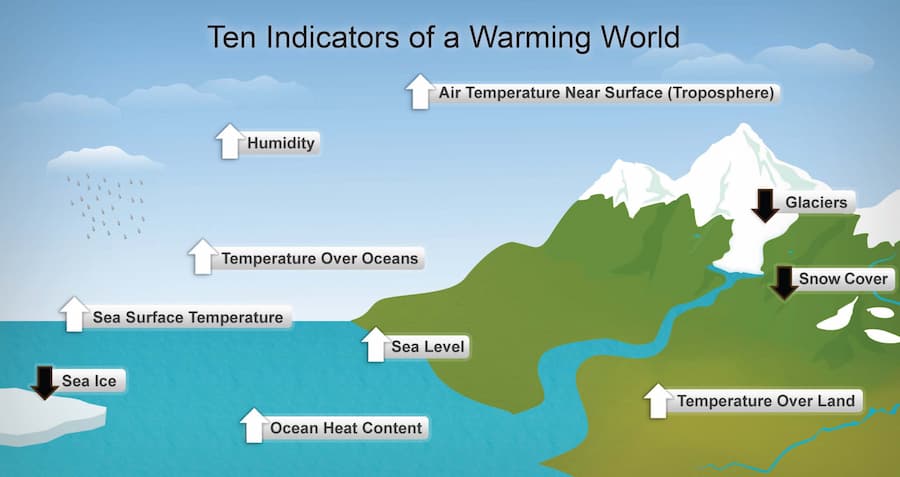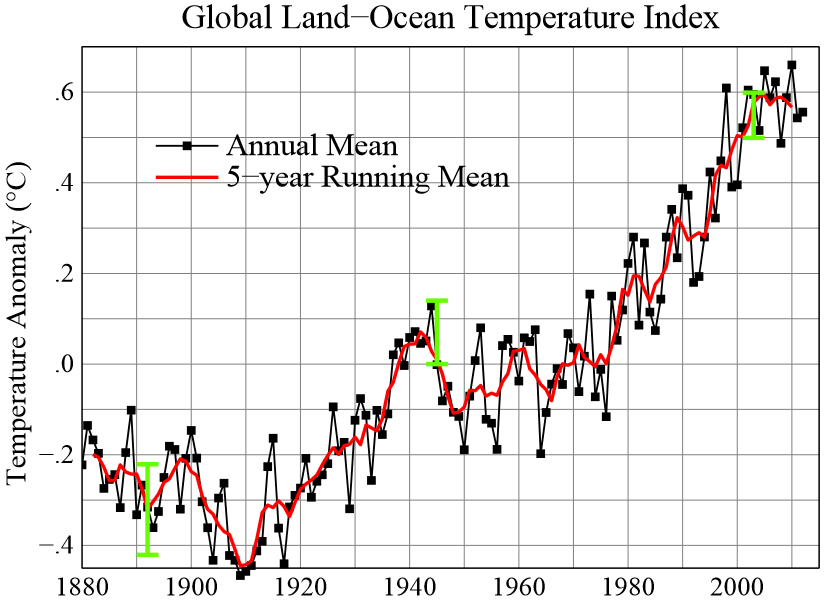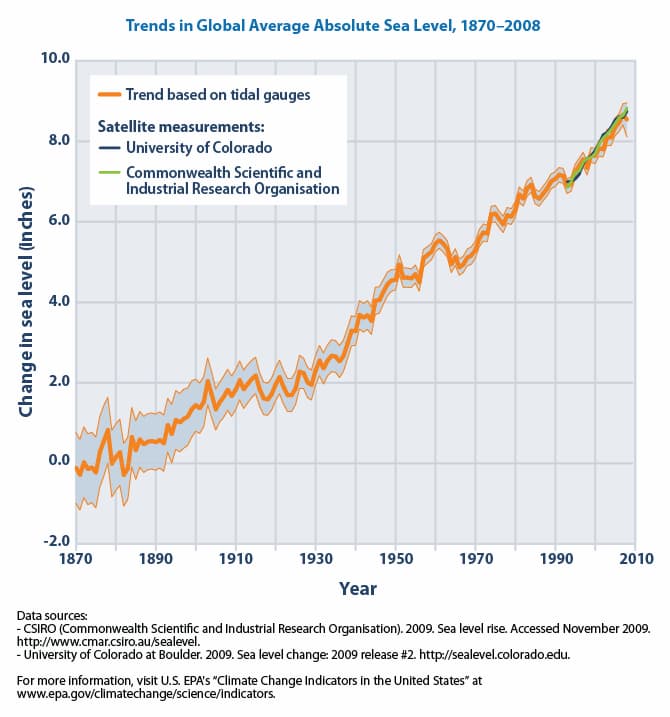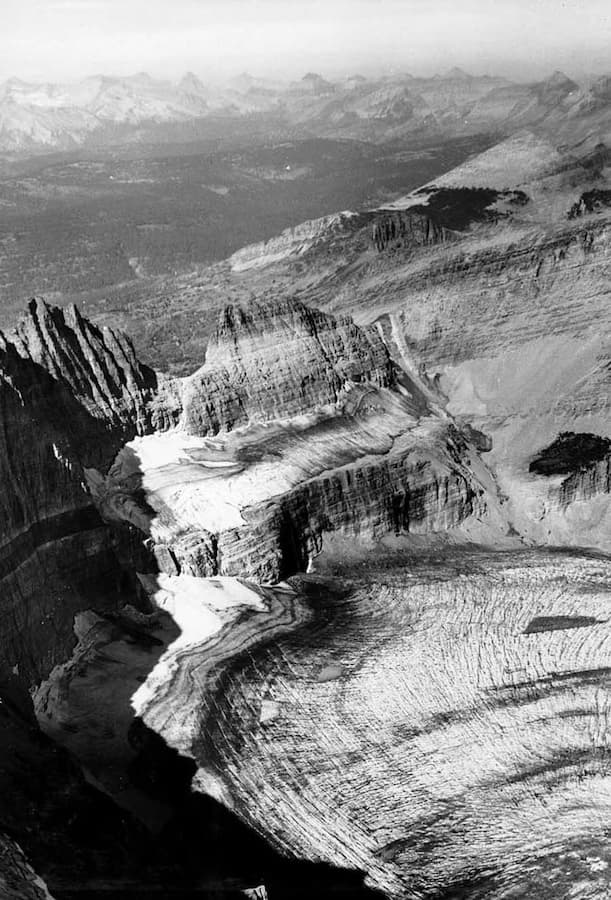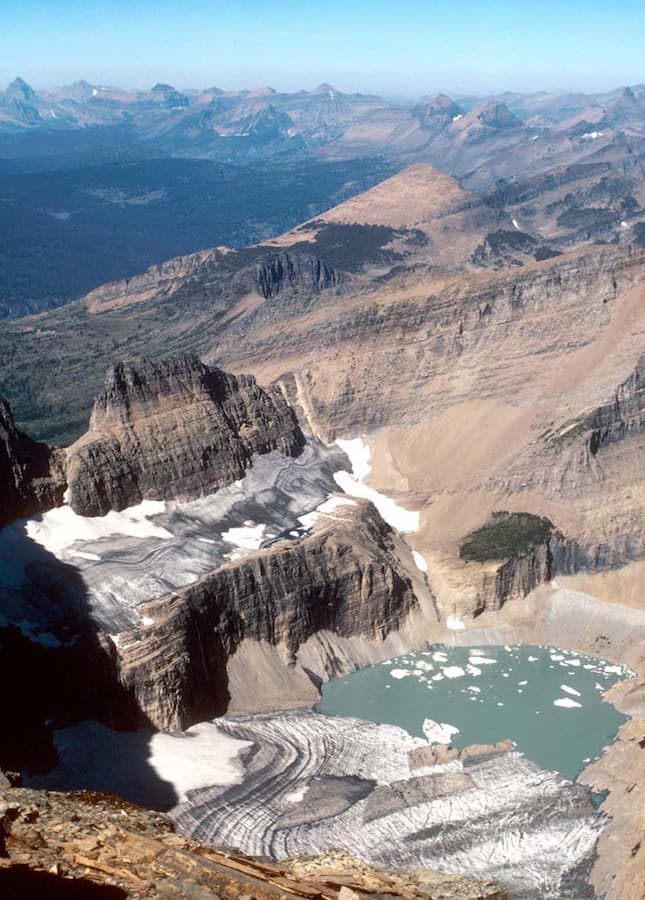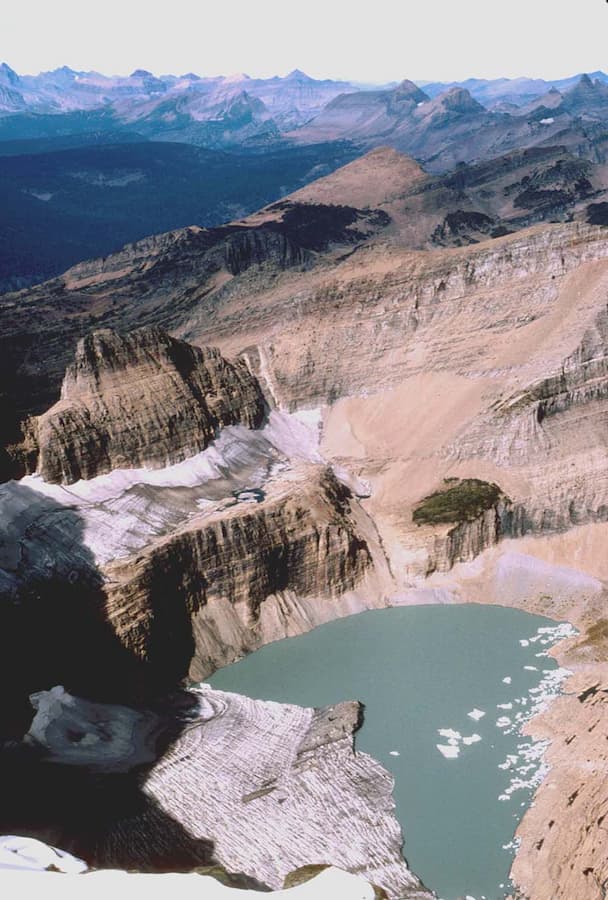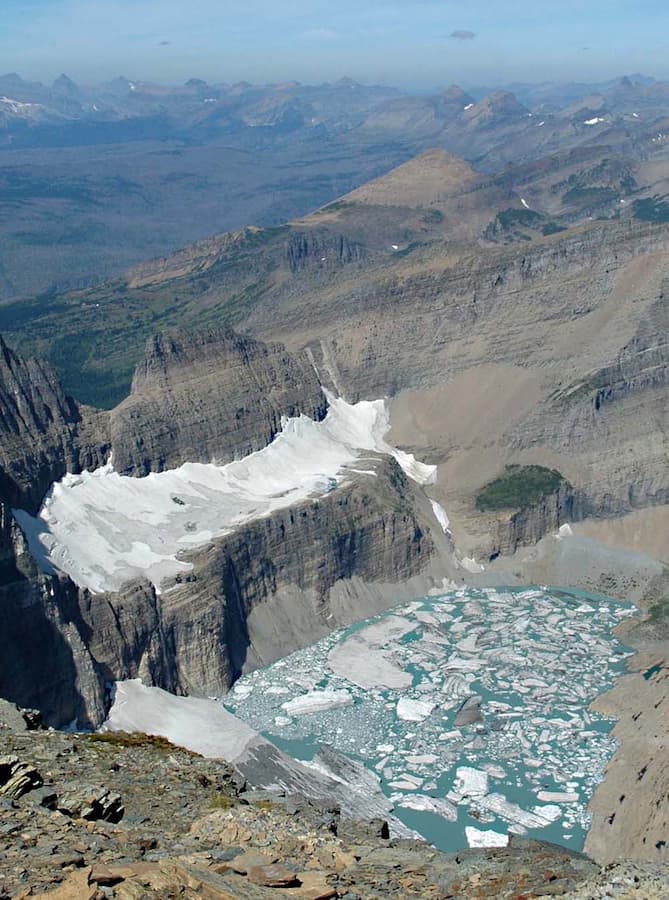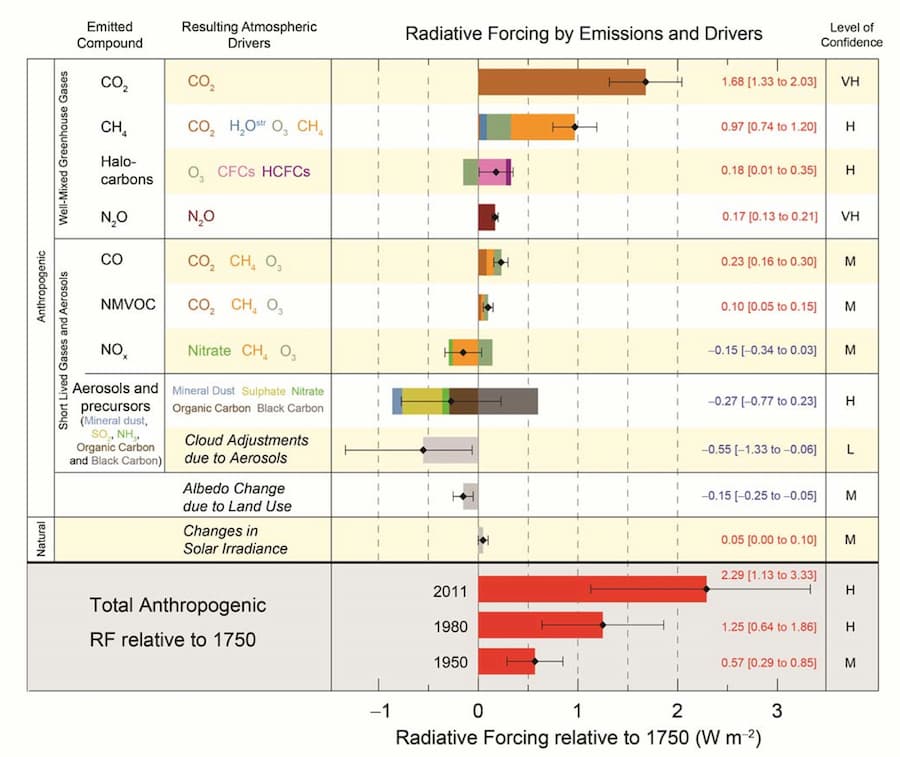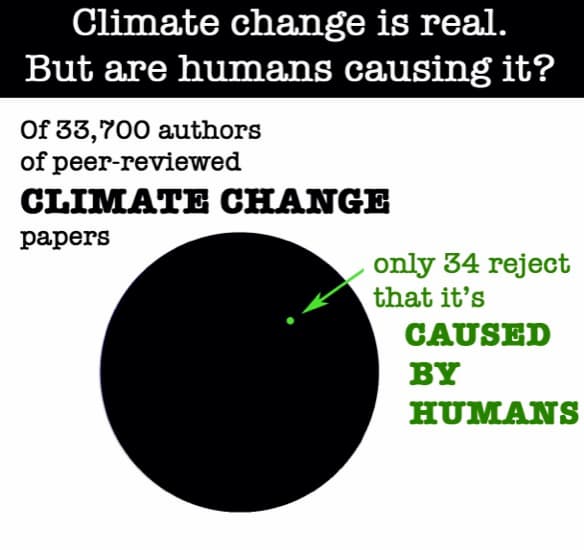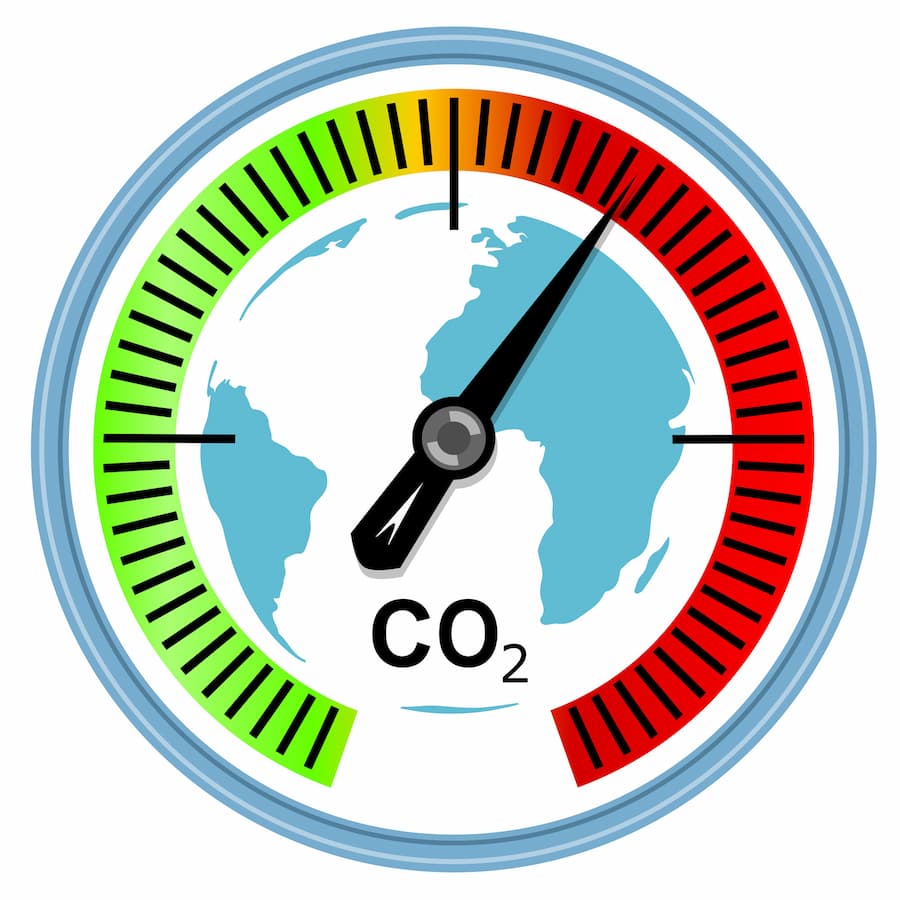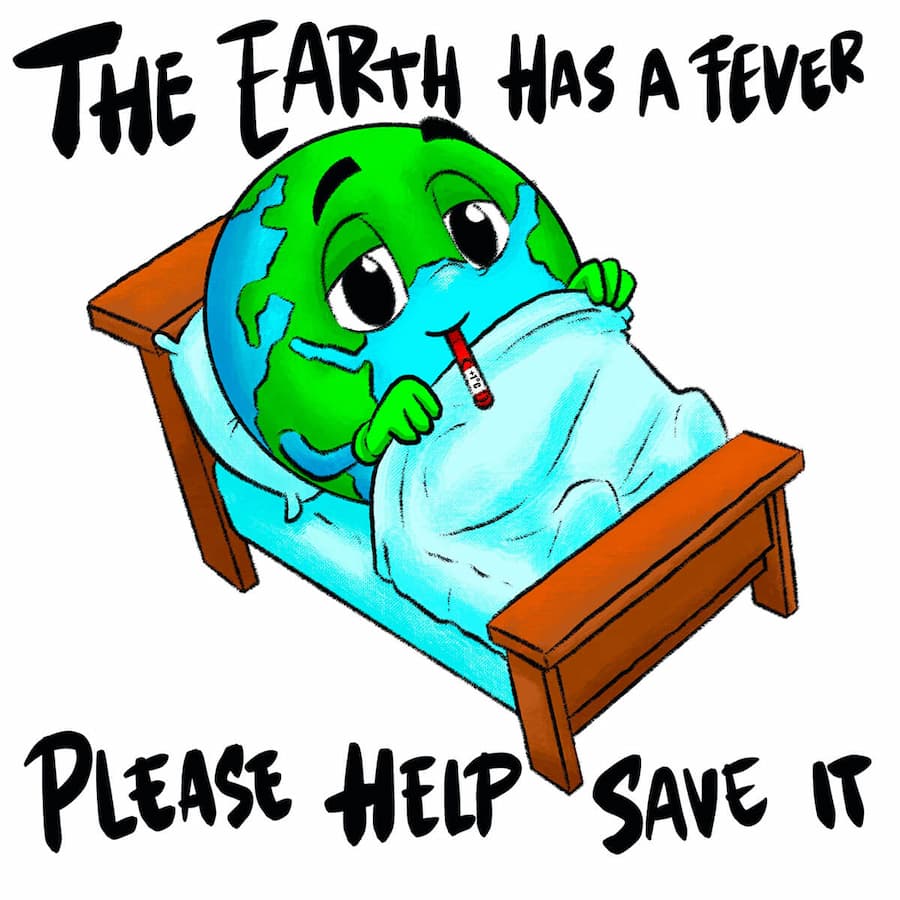Evidence of Climate Change
There has been a great deal of incontrovertible evidence of climate change that simply can't be ignored any longer.
The world has been gradually changing for the past years and most of these changes, unfortunately, are not even good changes at all.
On the contrary, the effects of climate change will be devastating to the human race along with every other species on the planet.

From National Academies
Incontrovertible Evidence
Without doubt, there are several phenomena happening around the world right now that serve as physical evidence of climate change.
Needless to say, there is a lot of theory behind climate change, namely sophisticated climate models which describe
- the greenhouse effect
- the roles of various greenhouse gases
- and climate feedbacks
Without further ado, here is a list of some of these changes that scientists are observing as we speak which act as evidence:
Rising Temperatures
- The ten hottest years ever recorded all took place since 2010, with the hottest one of all being 2016.
- Clearly, the rising of the global temperature is strong evidence of climate change. Since the 1880s, it has been noted that the Earth is continuously warming up. Temperatures have risen by at least 1.1 degrees Celsius since preindustrial times and the levels of carbon dioxide in the atmosphere are now at least 420 ppm (Source).
- The increasing temperature of the oceans is also an evidence of climate change. The oceans cover 70% of the Earth's surface and absorb 90% of the warming in recent decades by greenhouse gases. The ocean has increased in heat by at least 345 zettajoules since 1955. Thermal expansion of water is responsible for one-third to one-half of the global sea level rise According to NASA, 2022 was the warmest year for the ocean and also when it was at its highest global sea level (Source).
- Incidentally, the increase in carbon dioxide in oceans has also led to ocean acidification.
Source: NASA Goddard Institute for Space Studies
Rising Sea Levels
- A good evidence of climate change is the rising sea levels. Sea levels have risen by about 8-9 inches (21-24 centimeters) since 1880 (Source).
Melting of Glaciers and Polar Ice Caps
- The ice sheets, particularly those in Greenland and in the Antarctic, are quickly melting. In fact, the melting of glaciers happening around the world is actually worse than what scientists had predicted just a few years ago.
- The withdrawal of the glacial formations in several parts of the Earth, particularly those in the Himalayas, Africa, Alps, Andes, Alaska, and Rockies as a reaction to the twentieth century global warming is yet another evidence of climate change.
- Similarly, the melting of polar ice caps poses as another piece of evidence. For the past decades, the Arctic ice has been lessening in a rapid rate, with the range and density continuing to decline. Moreover, some scientists say the Arctic will become ice free by as early as 2035 (Source).
Other Drastic Changes
- Since the 1950s, high temperatures have been attributed as the cause behind the increasing instances of severe rainfall experiences in the United States.
- Overall, extreme weather events which include tropical storms, hurricanes, heat waves, droughts, wildfires, and floods have been increasing in frequency and intensity around the world.
- Mass desertification is drying up large areas of arable land in various parts around the world. For instance, the Sahara Desert is enlarging. Each year, according to the UN, 12 million hectares of last are lost to desertification (Source).
- Diseases such as malaria and dengue fever are not only targeting more people, but are expanding to new areas as a result of higher temperatures.
Scientific Consensus
Between January 1st, 1991 and November 9, 2012 there has been 13,950 peer-reviewed scientific articles on climate change with a total of 33,690 authors (rounded up in the figure below).
A study has shown that of all these articles, only 24 deny anthropogenic climate change with a total of 34 authors, roughly 1 in 1000.
What can we conclude from this study?
- In the scientific literature, global warming denial is clearly a visible minority.
- The authors of the few rejecting papers tend not to agree with, or even to cite, each other's work.
- Not including the authors themselves, only a handful of scientists cite the articles rejecting man-made climate change. Those who do cite them do not themselves reject anthropogenic global warming.
- The rejecting authors do not have an alternative theory to explain the observed warming that is taking place. In fact, they do not even agree among themselves (no bandwagon here).
- The vast majority of climate scientists accept the theory that mankind's greenhouse gas emissions are causing climate change.
More information at JamesPowell.org
Source: JamesPowell.org
Time to Take Action - Share the Evidence of Climate Change
These and many more effects of climate change are already more than enough to prove that climate change is indeed occurring.
Without a shred of a doubt, climate change is a global issue that needs to be addressed sooner rather than later in order to prolong our planet's great biodiversity.
If we don't, over 100 million people will perish by 2030 and over 1 million species could become extinct by the end of the century.
Every single evidence of climate change aforementioned by itself is enough to awaken our society that it is time to start to act upon these changes and strive to lessen if not totally eliminate the activities which might only further aggravate the present conditions of the Earth.
Make a change now and help stop climate change, not just for your sake but also for the benefit of future generations to come.
Further Reading and Sources
- Home
- Evidence
Join the Community and Newsletter (5000 Subscribers)
You can subscribe to my Substack Page or see the archives of previous posts. More great content coming soon!
Recent Articles
-
Climate Change Guide
Apr 23, 24 12:36 PM
The Climate Change Guide is your guide to a more sustainable future, and will provide you with all relevant information on mankind's greatest challenge. -
Climate Presentations by Climate Reality
Mar 03, 24 12:17 AM
You can see great climate presentations by Climate Reality. They can be customized for different audiences. -
Make the Planet Great Again!
Mar 02, 24 11:33 PM
We need to make the planet great again! We will build a solar wall along the Mexican border and make the fossil fuel industry pay for it! -
Historical Climate Change News
Mar 02, 24 11:25 PM
This section includes historical climate change news you should know about. These articles span several different topics and will help you stay up-to-date.
